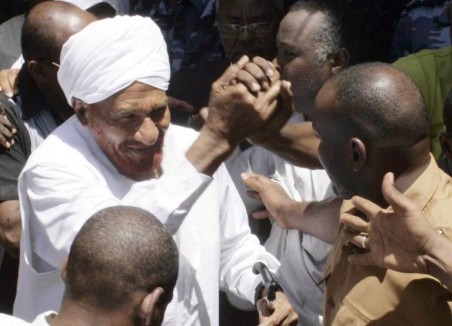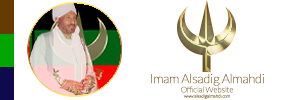
Feb. 1996
Constitutional Decree Number 13 and the Current Presidential and
Parliamentary elections in Sudan
- The present regime in the Sudan is a partisan military dictatorship which ruled the country since June 1989 by force and in the process deprived the peoples of basic human rights, denied basic freedoms, and engaged in policies and practices which isolated it nationally, regionally, and internationally.
- It is a phase in the development of all totalitarian regimes that they seek to legitimize themselves by the enactment of outwardly democratic reforms. Constitutional decree number 13 belongs to that tradition. It is a fig- leaf on the dictatorial regime. It is made all the more necessary because of the democratic agitation in the country, and the democratic uproar in the international climate.
- The decree does not rise up to the minimum requirements of Sudanese public opinion, for the following reasons:
(a) It presupposes the continuity of previous constitutional decrees, for example, decree number two which is the instrument which banned basic freedoms in the Sudan.
(b) It makes no reference to the guarantee of human rights. The regime’s position on human rights is defined in decree number seven. They are defined on the narrowest possible basis balling very short of the intrnational charter
(c) It endorses the establishment of a single party system, the National Congress.
(d) It ties the hand of the ‘elected’ president to abide by the political and constitutional luggage of the present regime.
(e) It ensures the continuity of the regime of martial law which gives the pervasive security systems carte blanche to intimidate the citizens 0f the Sudan.
(f) The document is full of contradictions. Like the Roman God Janus, it is looking at two directions at the same time: a secular and Islamic direction! It satisfies neither, but proves its raison d’être: a short sighted attempt to play to both galleries.
- The current elections are also completely unsatisfactory. That is so because:
- The electoral commission and its executive officers have all been nominated on a partisan basis by the present president who is a candidate in the coming elections.
- The elections are held under the hegemony of a single political party which has already chosen a third of the members of the coming National assembly. No other political organization is allowed to function.
iii. The state organization centrally, and regionally, is weighed heavily in favour of the official party’s candidates which makes their apparent competitors no more than make belief candidates to give the process the appearance of elections.
- There was no proper registration process but names have been registered from sugar supply cards which have been established for an altogether different purpose.
- The whole ‘electoral’ process has been so rushed to paralyze the country’s political forces and face them with a fait accompli.
- So great was the rush that the political and legal advisers of the president failed to find and deal with the loopholes in his position as a candidate. For example, he is an active officer in the Sudanese armed forces whose law prohibits officers from standing for any elections. Also, the president has already accepted a religious contract with citizens: Al Byaa. This should be entered into – according to the decree – after being elected not before.
vii. The elections practically exclude all the war zones in the Sudan which gives a de facto recognition to separation. The issue of peace should be given priority to a fake electoral exercise which is estimated to cost the country 3 billion Sudanese pounds in a budget which is already in great deficit.
viii. For similar reasons the political forces in the country have boycotted the state elections last year, and they are determined to boycott the current presidential and parliamentary elections as no more than a costly fig- leaf to the NIF dictatorship.
- U. N. observation, and indeed any type of regional or international observation of the current Sudanese elections, will give credibility to the assumption that there is something worth observing. The conditions of the elections as detailed here prove beyond reasonable doubt that the regime is simply engaging in a face lift to itself and its deposition.
- It is a good sign that the regime has sought to engage the attention of the U.N. in its political developments. It is also a good sign that they have given the U.N. mission free access to opposition figures. The U.N. is morally bound to discourage any fig- leaf business and to get the regime to talk about real democratic change, and real attempts at peace making in the Sudan. Development along such lines is implicit in the U.N. mission and its calling. The peoples of the Sudan will leave no stone unturned to establish peace and democratic change in their country without blood shed.

